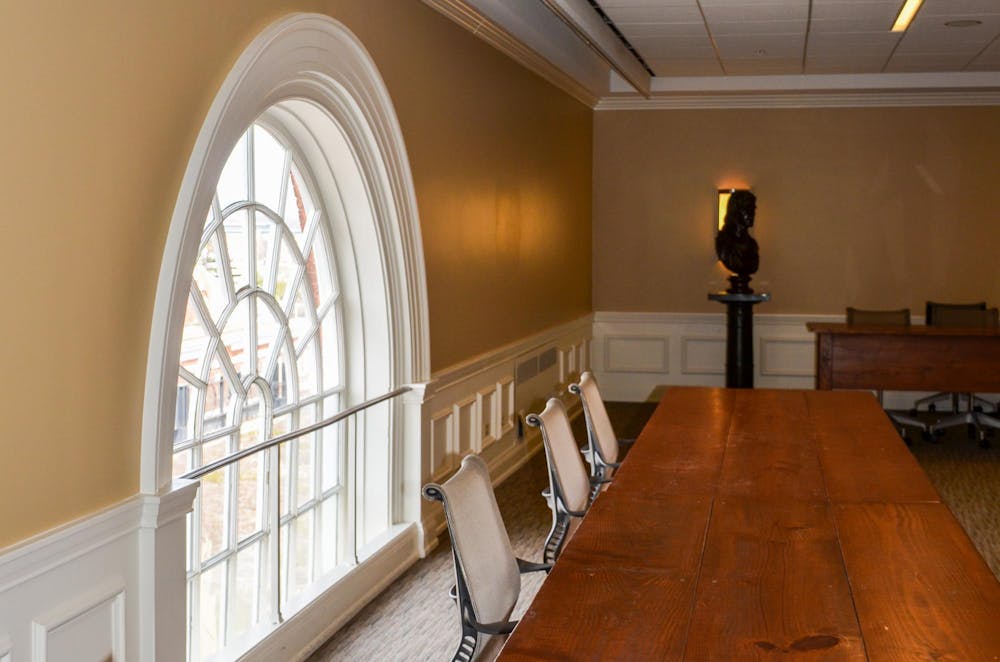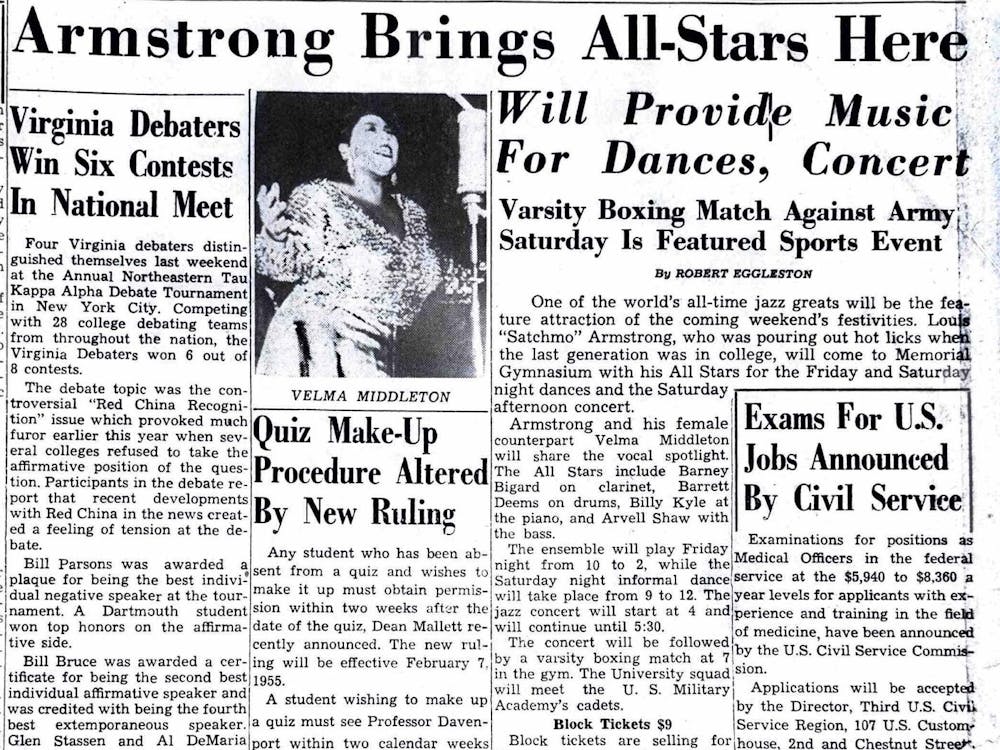The Honor Committee met virtually Sunday for the first of its summer meetings and discussed the selection and recruitment of new Support Officers, which will occur at the beginning of the fall semester.
The Support Officer pool is chosen by existing Senior Support Officers and the Selection and Recruitment Committee members through an application and interview process. The pool is divided into educators, advisors and counselors. These Support Officer groups report to the entire Committee, but are each led by a different member of the executive committee.
Educators are tasked with promoting the Committee’s outreach and community engagement work, while advisors are meant to guide and support parties on all sides of the case process. Counselors serve dual roles with such students both representing parties in hearings as well as compiling relevant evidence to support their arguments before Committee members reviewing cases.
Alexander Church, vice chair for investigations and fourth-year Engineering student, oversees the advisors. He noted that the Committee has seen an increased number of cases following the conclusion of final exams, and mentioned changes to the application process that might be needed for the incoming Support Officer pool.
“It's been taking about a week or two to even get advisors staffed on cases just to be able to notify people,” Church said. “If we can't figure out how to get retention higher, we're going to need to take more people.”
Church also said that he would like to see the new Support Officers stay available throughout the year, including the summer, so the Committee will not have to rely on the same few people working on cases.
Mary Holland Mason, vice chair for hearings and fourth-year Batten student, oversees the counselors and agreed with Church that the Committee could do more to increase Support Officer retention. She mentioned the potential impact of a larger group of counselors.
“I think we are pretty reliant on a key four, five or six counselors who are both investigating and doing hearings themselves. So I think there is opportunity … to potentially take a slightly bigger class,” Mason said. “But in the past, we’ve taken large classes, and have not always had the most willingness to staff … there's room to improve that in the counsel pool as well.”
After discussing the current state of the Support Officer pool and the Committee’s expectations of them, Committee members then engaged in a conversation for how best to recruit and retain students.
Seamus Oliver, Committee member and fourth-year College student, acknowledged that there is not much the Committee can do to ensure retention, but suggested having smaller training classes. These classes are designed to introduce newly selected Support Officers to Honor’s case processing system and serve as a way for them to get to know other students in their group.
“Maybe the one thing that we could rely on, or hopefully push, to actually bring the retention rate up would be running more and smaller training classes,” Oliver said.
Oliver said that if new Support Officers got to know the other people in their group and those leading their training sessions, then that could boost retention even if the raw number of Support Officers increased. He suggested it may be good for the Committee to take a larger class, but only if students were trained in smaller groups.
Neha Jagasia, Committee member and fourth-year Commerce student, suggested that the Committee should not recruit more counselors. She mentioned that she had a difficult time trying to staff a hearing when she was a counselor, because the number of people available exceeded the number of cases being reviewed.
She described how there are differences between the different Support Officer groups, but noted that it can be discouraging for counselors to rarely have the opportunity to work on cases. She also mentioned how she would like the entire Support Officer pool to include more upperclassmen as well.
“I think in the past … Honor has done a really good job with recruiting first-years, particularly my training class last semester was mostly first-years,” Jagasia said. “I think it was three-fourths or four-fifths first-years, so I think it might honestly be interesting to start targeting other years.”
Thomas Ackleson, Committee chair and fourth-year Engineering student, took the same position and said he hopes students from different academic backgrounds apply to join the Support Officer pool.
“Regardless of how big or small we end up making the classes, we still need people to apply and I think a great goal would be to have more applications than we could possibly ever interview,” Ackleson said. “We'd also get more of a pick over who we're taking, which would be great.”
Ackleson suggested that Committee members could send out emails to their individual schools or set up announcements in large introductory classes for people to apply. According to Ackleson, Support Officer applications will open in late August and will be accessible to all students across all schools.
The Committee will reconvene virtually at 7 p.m. July 20.







